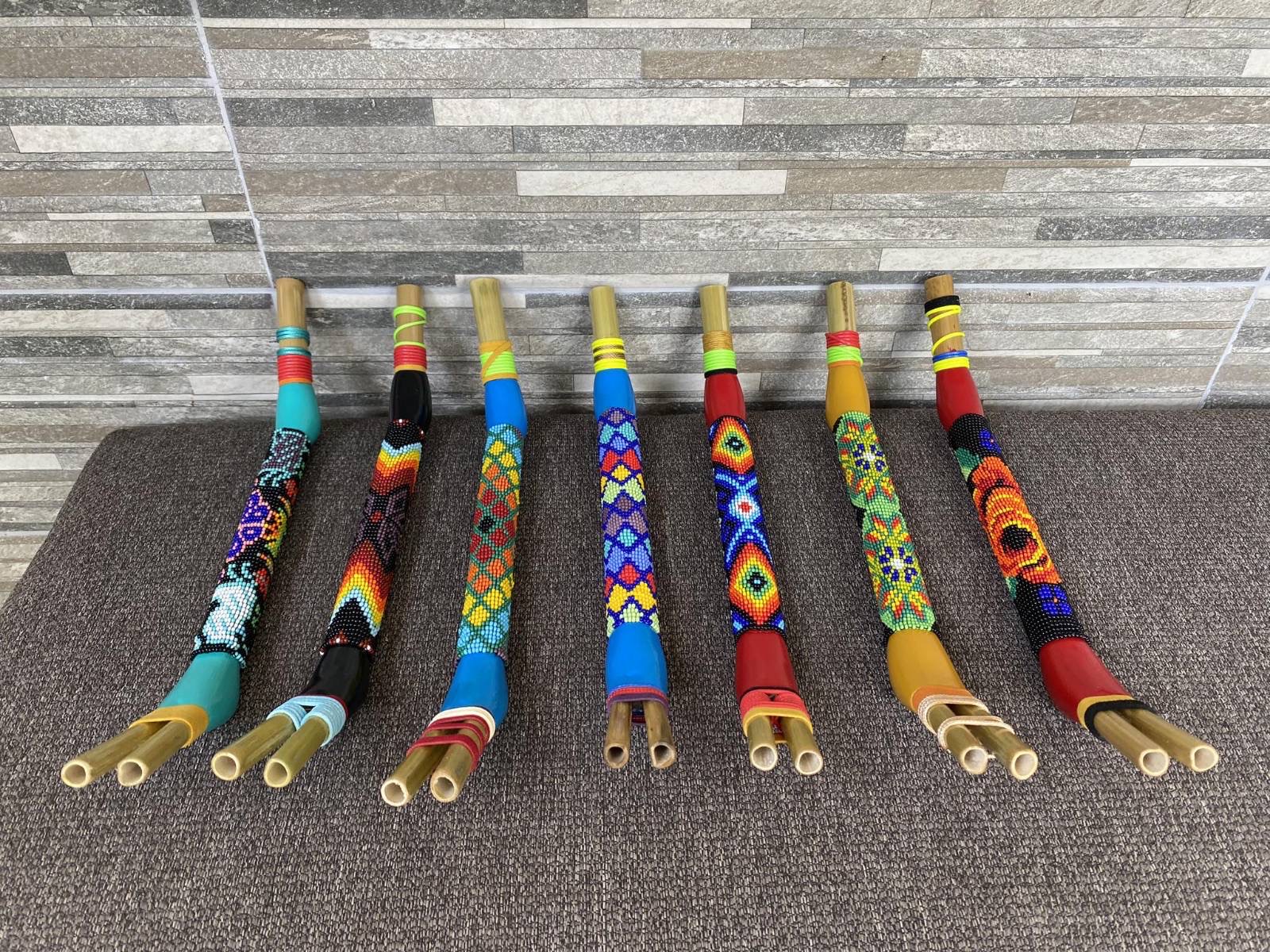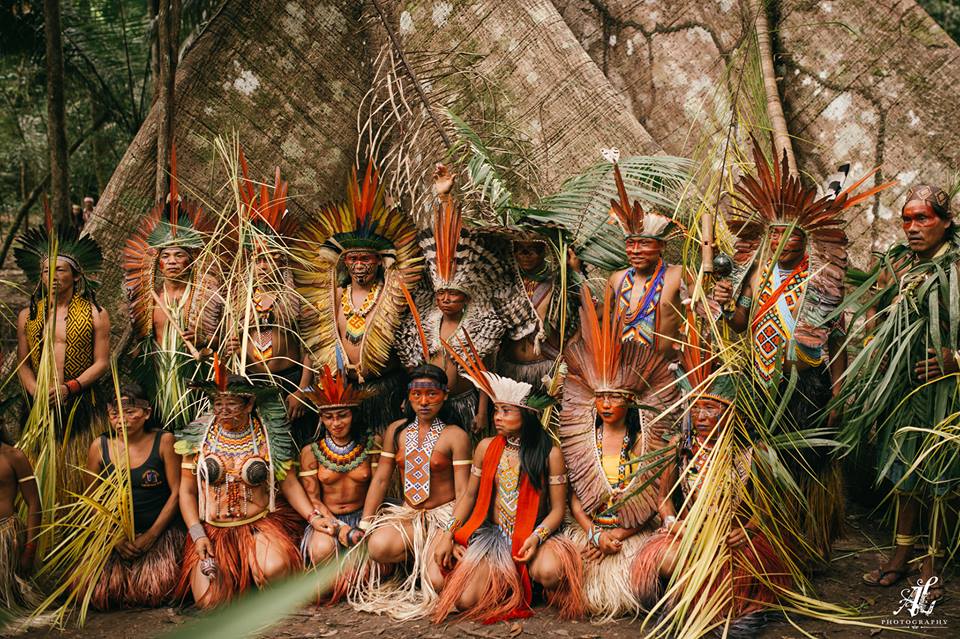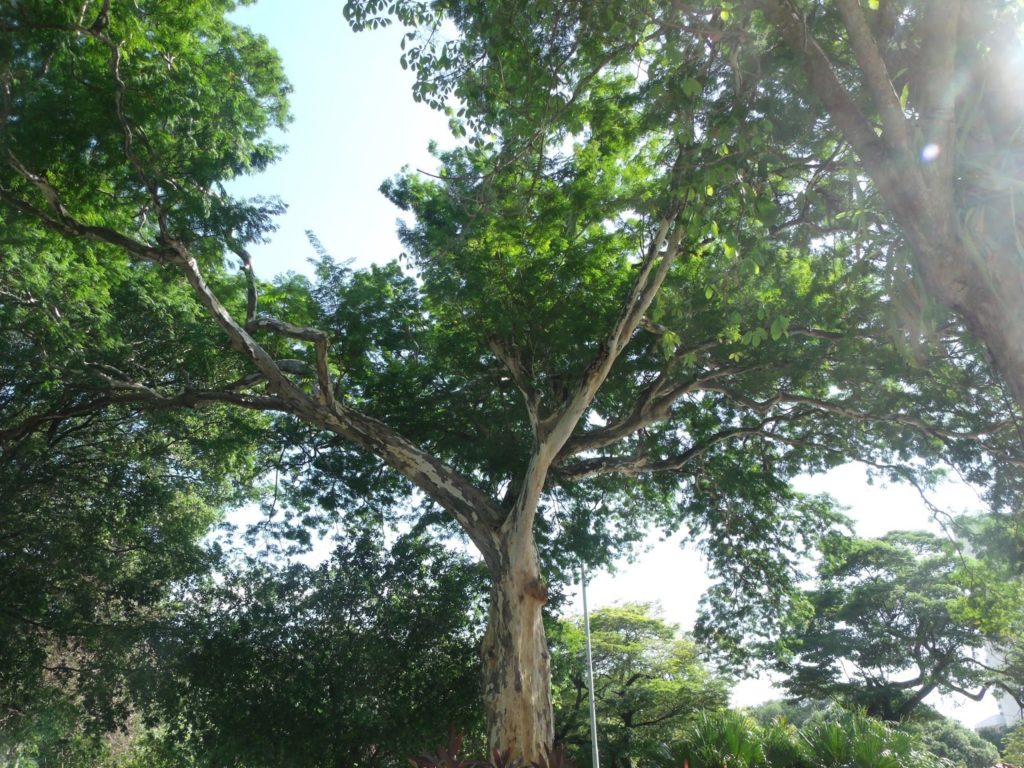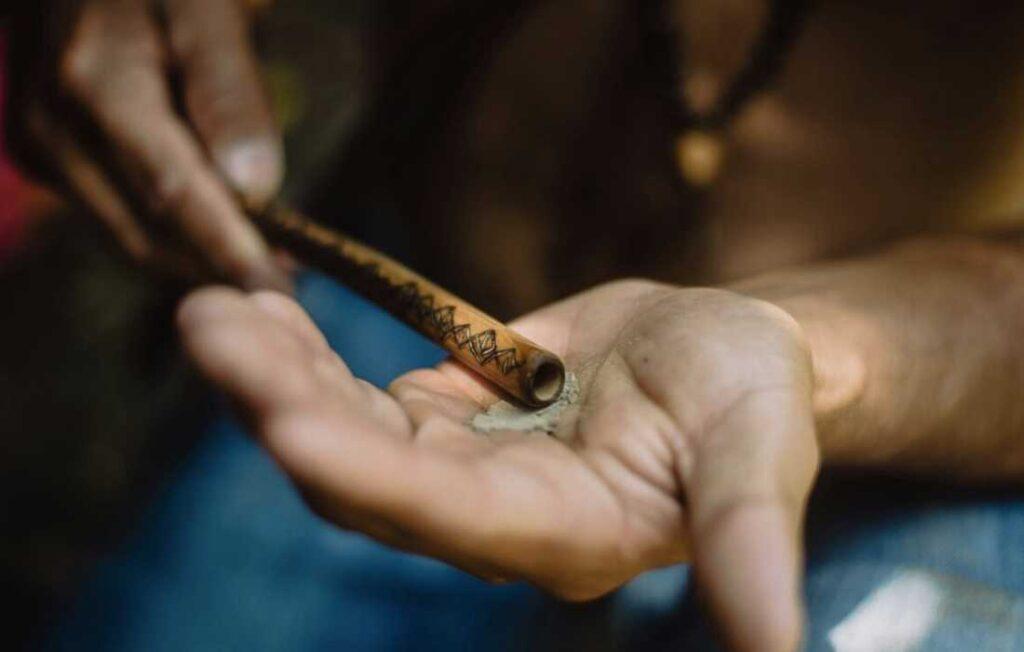Tepí - blowers, applicator for Rapé
The Tepi is an applicator that is used when somebody wants to blow mediciny to another person, normally a shaman or the person conducting a ceremonial.
The people in the forest use it for ceremonial Rapé sharing. There are an endless variety of models and possibilities. In the old days the indigenous used a long bamboo or reed to blow, as became famous from anthropology movies. Nowadays they are usually a bit less dramatic, but depending on the quantity of medicine and strength of the blow it can be very strong.

Blowing Rapé with TEPÍ
Within the indigenous tradition, the hapé is not “inhaled”. It is always blown. Blown into the nostrils by a shaman or another person or by yourself provokes a strong reaction in the inexperienced ones. Its effect is fast and afterwards the person feels a great sense of well-being and disposition, not to mention the cleaning of the airways that it provides.
For blowing, there are several breath intensities and styles to choose from.
The beija flor (hummingbird) and jiboiá (the boa constrictor) are the most prevalent blows.
- Beija flor blow has a short and rapid blow, but the jiboia has a long and leisurely blow. The beija flor is a more upbeat tune that will wake you up.
- Jiboia blow begins gently and gradually acquires power toward the conclusion. Smaller quantities are peaceful and contemplative; larger amounts gradually sneak up on you and acquire power at the end.
Finish the blow by putting the tip of your tongue to the roof of your mouth. This effectively concludes the application.
TIP: You can simply training your blow with the Tepi (without Hapé) to improve your technique.
This product is an insence and not ment for ingestion. We don't claim that this product has any healing properties. This natural product is offered for its ethnographic and historical value and is supplied without express or implied fitness for a particular purpose. All information provided is for educational, scientific, ethnographic and historical research purposes only. All products are sold as botanical samples only with no express or implied claims for a specific purpose or use. The use and use of this product is at the discretion, responsibility and risk of the customer.
The Kaxinawa Tribe (Huni Kuin)
The Kaxinawá (Huni Kuin) people are the original inhabitants of Brazil and Peru. Their cities lie along the Purus and Curanja rivers in Peru and the Tarauacá, Jordão, Breu, Muru, Envira, Humaitã an...
Mulateiro "Tree of Youth"
Mulateiro (Calycophyllum spruceanum) is a large tree with a height of 20 to 35 meters. It is a native plant of the tropical regions of the Amazon, including Colombia, Ecuador, Peru, Bolivia and Bra...
What is Amazonian Rapé?
Rapé or Rapeh, Hapé, Rapesito is a very sacred shamanic medicine produced by the indigenous tribes of South America, primarily in Brazil and Peru. Rapeh or Rapé, Hapé, Hapeh is pronounced "haa-pay ...
The Root Chakra (Muladhara): Your Key to Stability and Security
Do you often feel tired, anxious, or like your head is in the clouds, unable to focus? It might be time to tend to your foundations—your Root Chakra. This energy center is the pillar upon which y...






